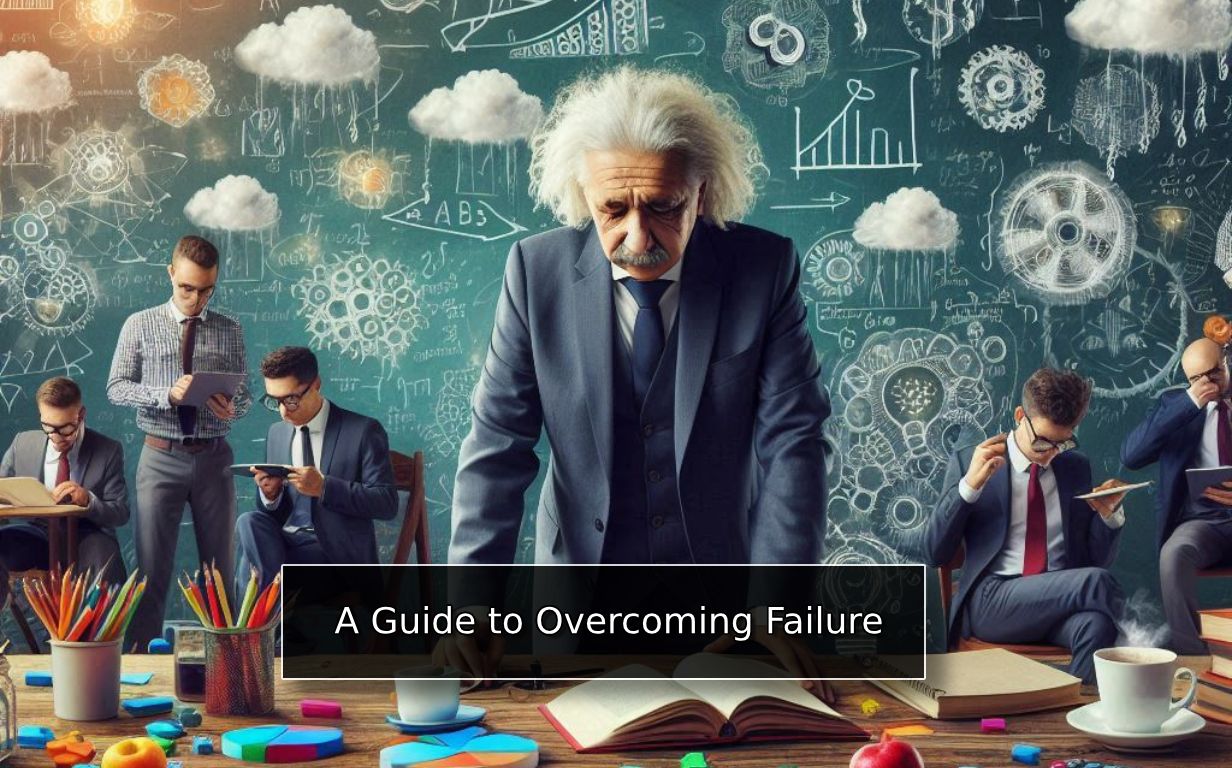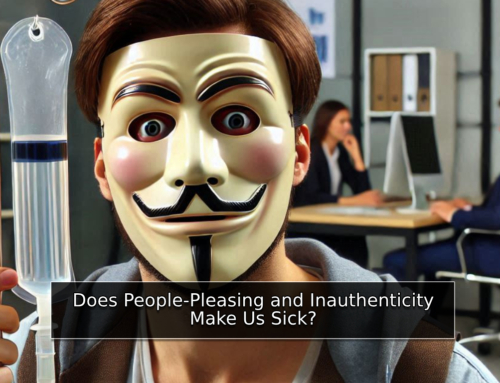A Guide to Overcoming Failure
Failure is an Inevitable Part of Our Journey
Albert Einstein believed that failure is not the opposite of success, but rather a part of it. We all experience failures in life. Whether it's an athlete who couldn't reach their goal, a student who failed a test, or an entrepreneur whose project didn't succeed – failure is an integral part of our journey. But how can we transform this source of frustration into a source of growth?
Why is Failure an Opportunity to Grow?
Failure is like a personal tutor that shows us where we can improve. It allows us to identify our weaknesses, learn from mistakes, and develop new strategies. Instead of avoiding important actions in order to avoid failure (atypchiphobia), we can accept it as a necessary step towards success.
How to Cope with Failure
- Acknowledge Your Emotions: Failure evokes a wide range of emotions, from anger and frustration to guilt, shame, sadness, and disappointment. It's important to recognize, acknowledge, and allow these feelings, rather than suppressing them.
- Change Your Internal Dialogue: Instead of focusing on the failure itself, try to understand what you can learn from it. Instead of saying "I failed," say "I learned." Remember, failing at a task doesn't define you as a failure. It's a specific event, not a blanket statement about who you are. When we remember this, we can cope with failures more effectively and learn from them.
- Set Small Goals: Breaking down a large goal into smaller, more achievable ones helps maintain motivation and allows you to feel a sense of accomplishment at each stage.
- Build a Support Network: Sharing with friends, family, or a mentor can provide emotional support and practical help.
- Treat Yourself with Kindness and Compassion: Be gentle and patient with yourself. Celebrate small victories. Small achievements are building blocks for healthy self-esteem. Remember, failing at a task doesn't negate all your achievements and talents.
- Keep Practicing: Whether it's physical training, studying, or working on a new business idea, persistence is key.
- Consider CBT and ACT Therapy: When feelings of failure damage self-esteem and prevent you from moving forward in life, these therapies can provide you with the tools and skills to overcome stagnation and become proactive in building yourself back up and achieving success.
Failure and Self-Esteem
The feeling of failure can significantly damage self-esteem and trap us in a cycle of stagnation. Often, it leads us to a victim mentality and self-blame, manifested in feelings of guilt and shame, judgmental thoughts, self-criticism, and ultimately, self-pity. This strategy, although understandable, is ineffective and weakens our ability to cope with future challenges. CBT and ACT therapies offer effective tools to break the cycle of self-blame. CBT helps us identify and change the negative and automatic thoughts that reinforce the feeling of failure, while ACT teaches us to accept the presence of difficult emotions and act in accordance with our values. Both approaches help us replace ineffective strategies with ones that work for us and bring us closer to becoming the person we want to be.
Conclusion
Failure is an inevitable part of life. But the way we choose to see it makes all the difference. Instead of focusing on what we've lost, let's focus on what we've gained – wisdom, experience, and personal growth. Remember, failing at a task doesn't define you as a failure. When we stop avoiding it at all costs, we open the door to true success and self-realization.
Disclaimer: The information presented in this post is for informational purposes only and should not replace professional advice. If you are struggling with emotional difficulties, please consult a qualified therapist.
Contact now
Ready to take the first step towards positive change? Contact me now for more information and to schedule an appointment. Whether you prefer in-person sessions in Tel Aviv or virtual meetings via Zoom, my integrated approach of Cognitive Behavioral Therapy (CBT) and Acceptance and Commitment Therapy (ACT) can help you break free from struggles and find greater fulfillment in life. I'll be sure to get back to you as soon as possible. Let's embark on this transformative journey together!
Call Whatsapp 052-2325511
Or fill out the following form.
Can ACT and CBT assist you or your loved ones?
Welcome to my therapy practice, where I offer a powerful combination of Cognitive Behavioral Therapy (CBT) and Acceptance and Commitment Therapy (ACT) techniques. CBT is a goal-oriented, short-term approach that's highly effective for anxiety, depression, low self-confidence, and more. ACT complements CBT, helping you navigate life's challenges and find fulfillment and authentic, happier life.
If you're struggling with anxiety, depression, low self-image, or facing setbacks, CBT combined with ACT may be the key to transforming your life. Break free from the struggle and take a step towards a happier, more fulfilling life.
Contact me today to schedule an appointment and embark on your journey of positive change. You don't have to face it alone; I'm here to support you every step of the way. Let's work together to create the life you deserve!





